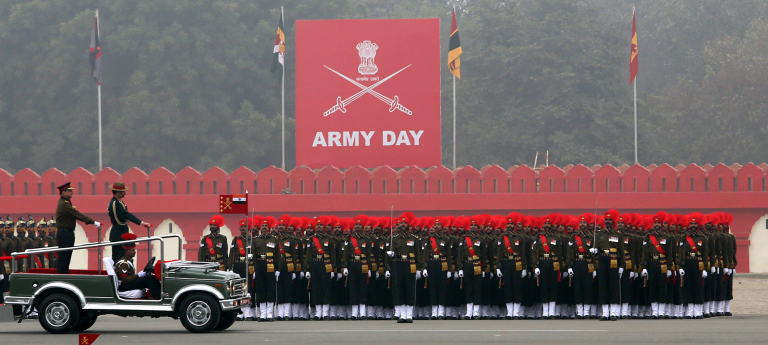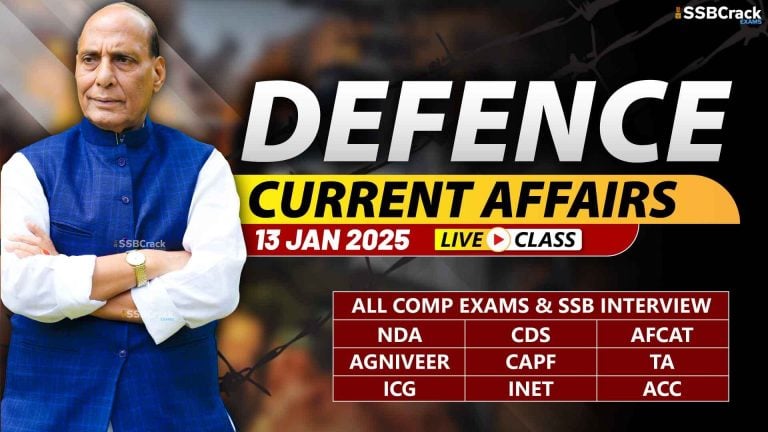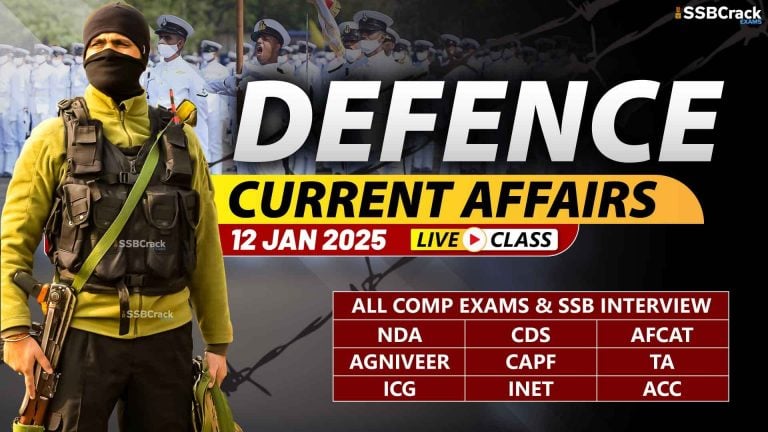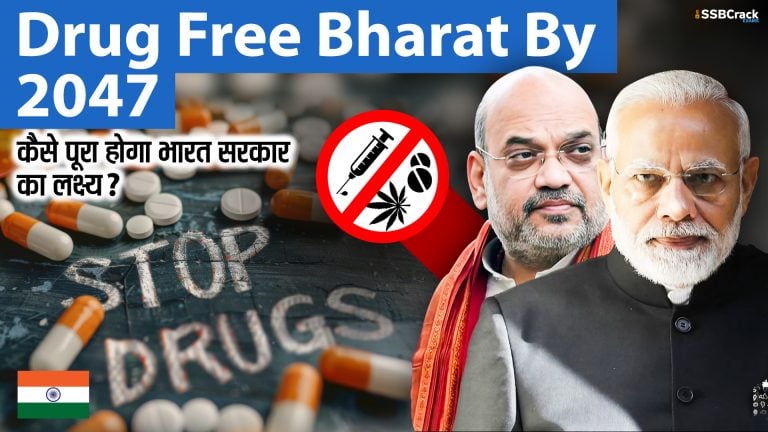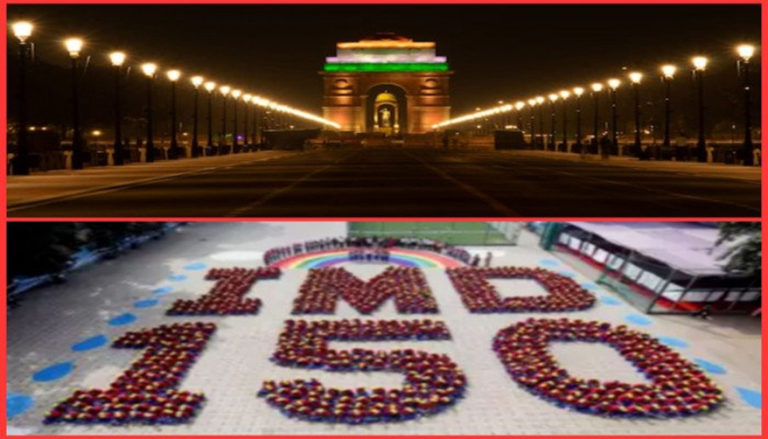The Indian Army is renowned for its diverse and sophisticated array of armored vehicles, designed to meet the unique challenges posed by its geographical and strategic landscape. Among these, tanks play a critical role in modern warfare, offering mobility, firepower, and protection. This article delves into the Top 5 Tanks of the Indian Army, highlighting their specifications, capabilities, and significance in maintaining India’s defense readiness.
Top 5 Tanks of the Indian Army
1. T-90 Bhishma
Overview
The T-90 Bhishma is an upgraded version of the Russian T-90 tank, specifically tailored to meet the Indian Army’s operational requirements. The Bhishma variant incorporates several advanced technologies to enhance its combat effectiveness.
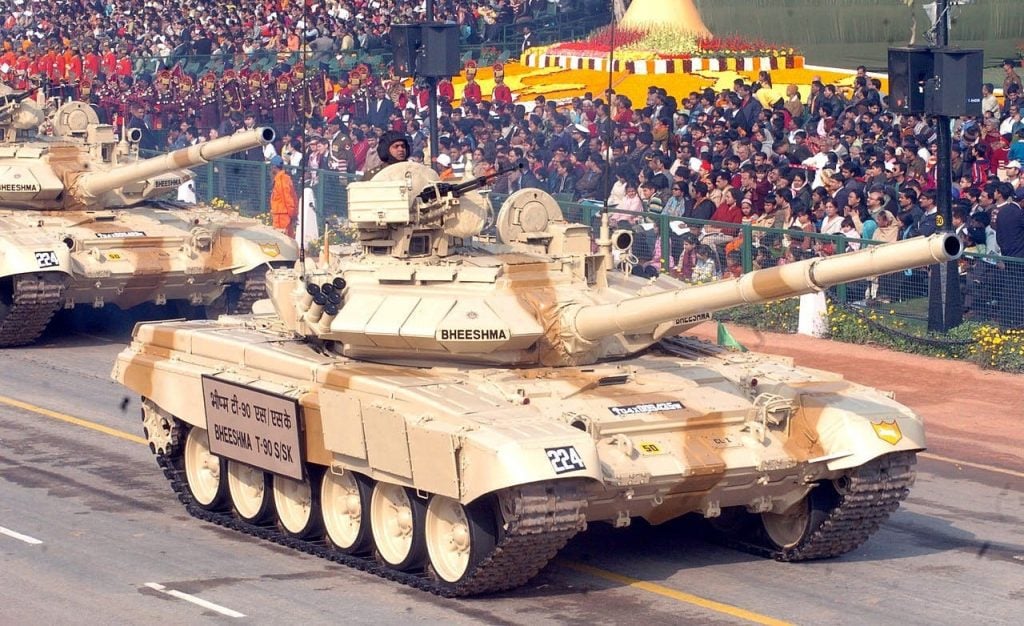
Specifications
- Weight: 46.5 tons
- Length: 9.63 m (31 ft 7 in)
- Width: 3.78 m (12 ft 5 in)
- Height: 2.22 m (7 ft 4 in)
- Engine: 1,000 hp diesel engine
- Maximum Speed: 60 km/h (37 mph) on road, 40 km/h (25 mph) off-road
- Armament:
- 125 mm smoothbore gun
- 7.62 mm PKT machine gun
- 12.7 mm anti-aircraft gun
Features
The T-90 Bhishma boasts modern fire control systems, including a ballistic computer, laser rangefinder, and thermal sights, enhancing its accuracy and targeting capability. Its composite armor and explosive reactive armor provide improved protection against anti-tank munitions.
Significance
The T-90 Bhishma is a cornerstone of the Indian Army’s armored corps, providing a balance between mobility, firepower, and protection. Its operational flexibility and adaptability make it suitable for various terrains, particularly in the northern regions.
Also Read | 10 Essential Skills Indian Armed Forces Want from New Officers
2. Arjun MK1A
Overview
The Arjun MK1A is an advanced variant of the original Arjun tank, incorporating various upgrades to enhance its combat capabilities. This iteration reflects the lessons learned from earlier models and modern warfare requirements.
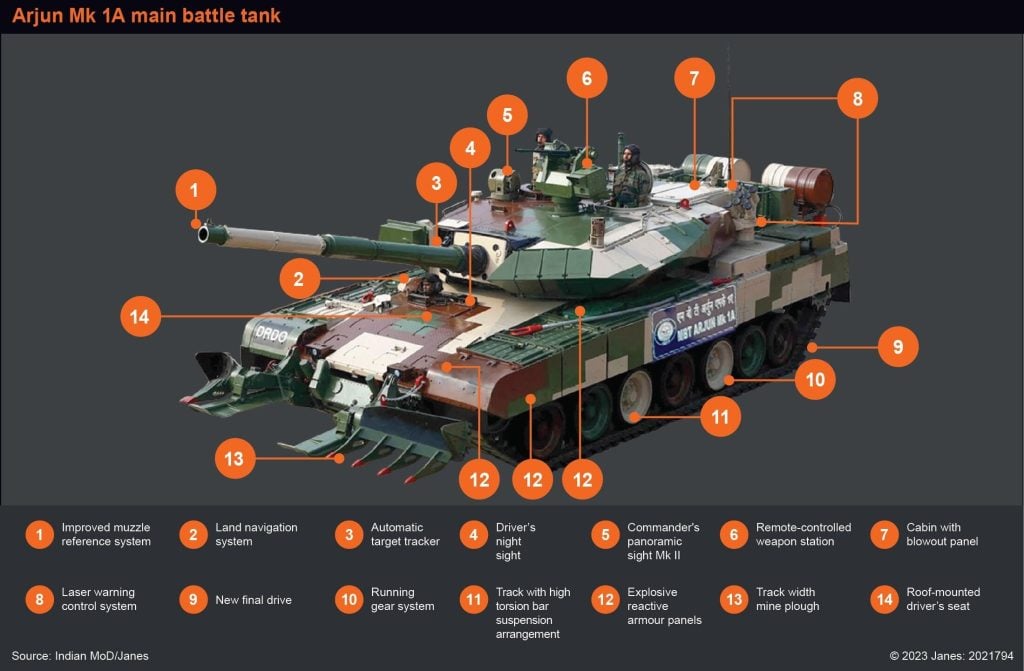
Specifications
- Weight: 68 tons
- Length: 10.66 m (34 ft 11 in)
- Width: 3.70 m (12 ft 1 in)
- Height: 2.39 m (7 ft 10 in)
- Engine: 1,400 hp diesel engine
- Maximum Speed: 70 km/h (43 mph) on road, 40 km/h (25 mph) off-road
- Armament:
- 120 mm smoothbore gun
- 7.62 mm coaxial MG
- 12.7 mm anti-aircraft gun
Features
The Arjun MK1A boasts enhanced firepower, improved armor protection, and upgraded electronic systems. Its capabilities include better situational awareness through advanced sensors and target acquisition systems.
Significance
The Arjun MK1A reinforces India’s commitment to indigenous defense production. It symbolizes the evolving landscape of armored warfare and the importance of modernization in maintaining a competitive edge.
3. T-72 Ajeya MK2
Overview
The T-72 Ajeya MK2 is an upgraded version of the T-72 Ajeya, incorporating advanced technologies to enhance its operational effectiveness. This variant reflects the Indian Army’s commitment to maintaining its armored fleet.
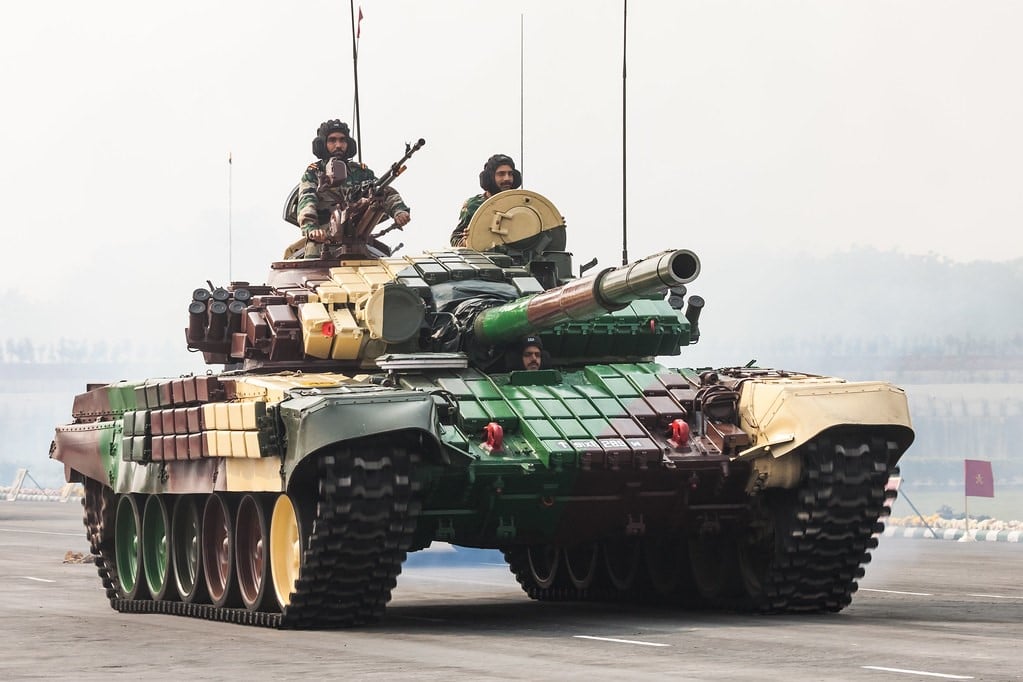
Specifications
- Weight: 41.5 tons
- Length: 9.53 m (31 ft 3 in)
- Width: 3.59 m (11 ft 9 in)
- Height: 2.23 m (7 ft 4 in)
- Engine: 780 hp diesel engine
- Maximum Speed: 60 km/h (37 mph) on road, 40 km/h (25 mph) off-road
- Armament:
- 125 mm smoothbore gun
- 7.62 mm PKT machine gun
- 12.7 mm anti-aircraft gun
Features
The T-72 Ajeya MK2 is equipped with modernized fire control systems, improved armor, and enhanced mobility features. These upgrades enable the tank to operate effectively in various combat scenarios.
Significance
The T-72 Ajeya MK2 is a vital component of the Indian Army’s armored forces. Its enhancements ensure that it remains relevant and capable of addressing contemporary battlefield challenges.
4. Zorawar LT
Overview
The Zorawar is an Indian light tank design. It is designed to have a high power-to-weight ratio along with substantial firepower, protection, surveillance and communication capabilities.
Crew: 3
Designed: 2022-2024
Main armament: Cockerill 105 mm high-pressure rifled gun in customized Cockerill 3105 Turret
Manufacturer: Larsen & Toubro
Maximum speed: 70 km/h (43 mph); 35–40 km/h (22–25 mph) cross country
No. built: 1 prototype
Place of origin: India
4. BMP2 Sarath
It is the best infantry combat vehicles in the world with modern weapon systems. It is ideal for fighting battles with speed, surprise and deadly precision.
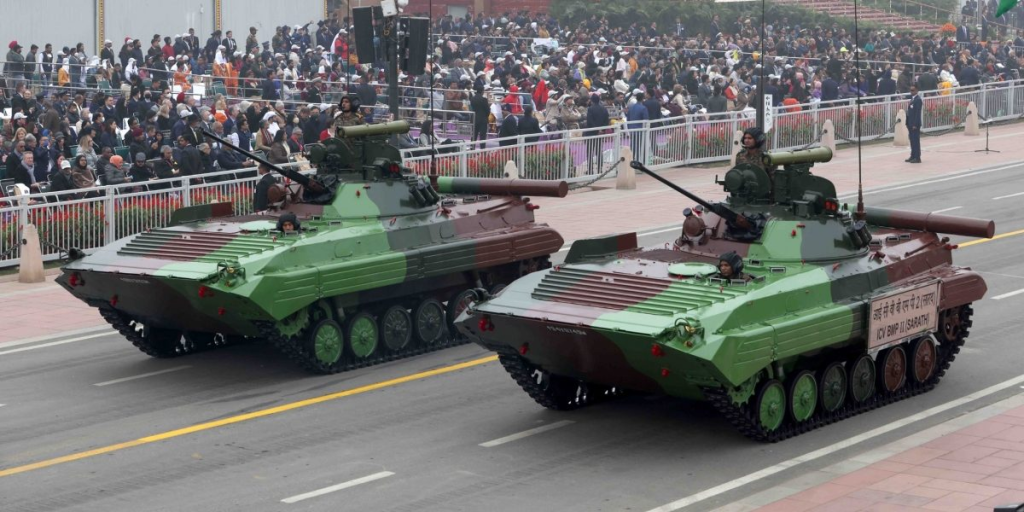
Mobility : Powered by 300 HP Engine, it is a highly mobile to meet all tactical requirementsf of mobility in a battlefield, travels at an incredible 65 KMPH, with easy steering ability in cross country terrain.
SARATH BMP-II is a truly amphibian vehicle which can travel at 7 KMPH on water and can over-come slopes upto 35 degree and can cross obstacles of 0.7 M.It can be easily transported by air due to its low weight.
Protection : It is protected with armoured plates all around there by ensuring a high degree of protection to the combatants.It offres a chameleon like camouflage with the help of smoke grenades creating a smoke screen.
Fire Power : Equipped with a rapid fire 7.62 MM medium coaxial machine gun, a 30 MM cannon and a second generation homing type anti tank guided missile, the SARATH BMP-II can neutralise all kinds of land based and low flying military objects.
Night Vision : Provided with sharp night vision devices and a low silhoutte, SARATH BMP-II is a dream come true for an infantry Man in the battle field.
Conclusion
As the landscape of warfare evolves, the Indian Army is poised to further enhance its armored capabilities, ensuring that its tanks remain at the forefront of technological advancements. The emphasis on indigenous development, such as the Arjun series, underscores a strategic move towards reducing dependency on foreign defense systems while fostering domestic manufacturing capabilities.
In conclusion, the top six tanks of the Indian Army exemplify a blend of heritage, modernization, and technological innovation. They serve not only as powerful tools of warfare but also as symbols of national pride and resilience. The Indian Army’s commitment to continuous improvement and adaptation will ensure its armored forces remain a formidable presence on the battlefield for years to come.




